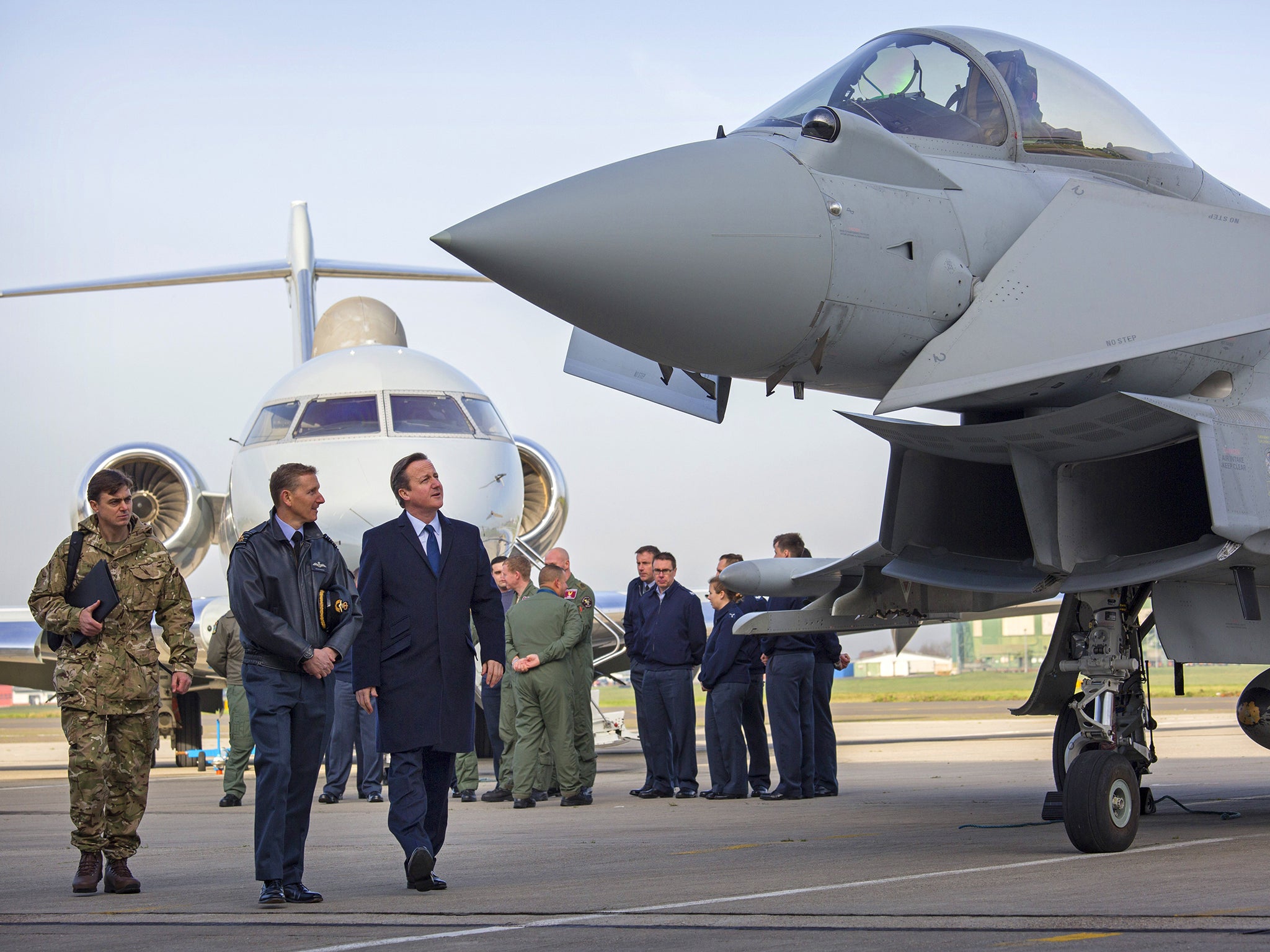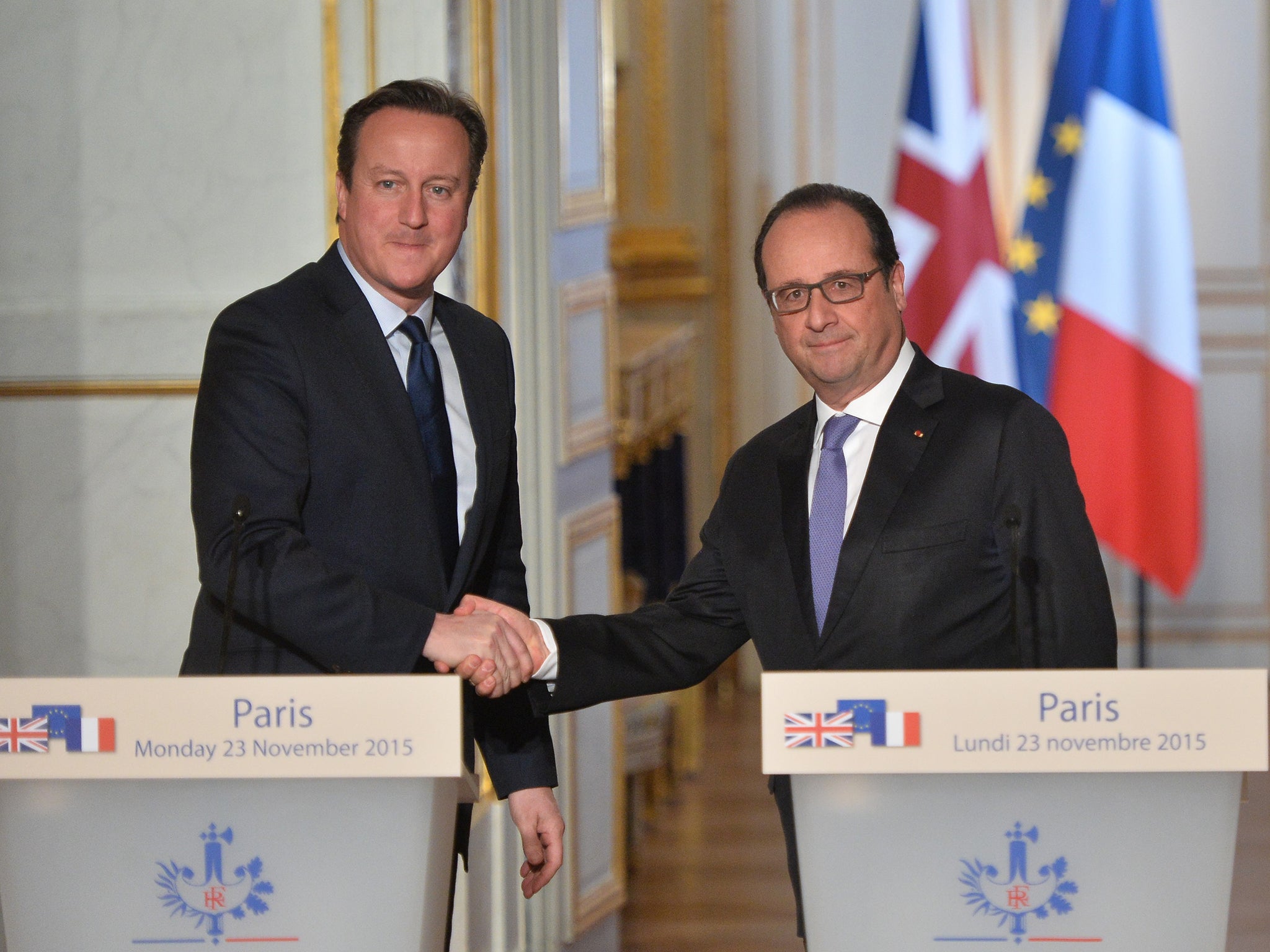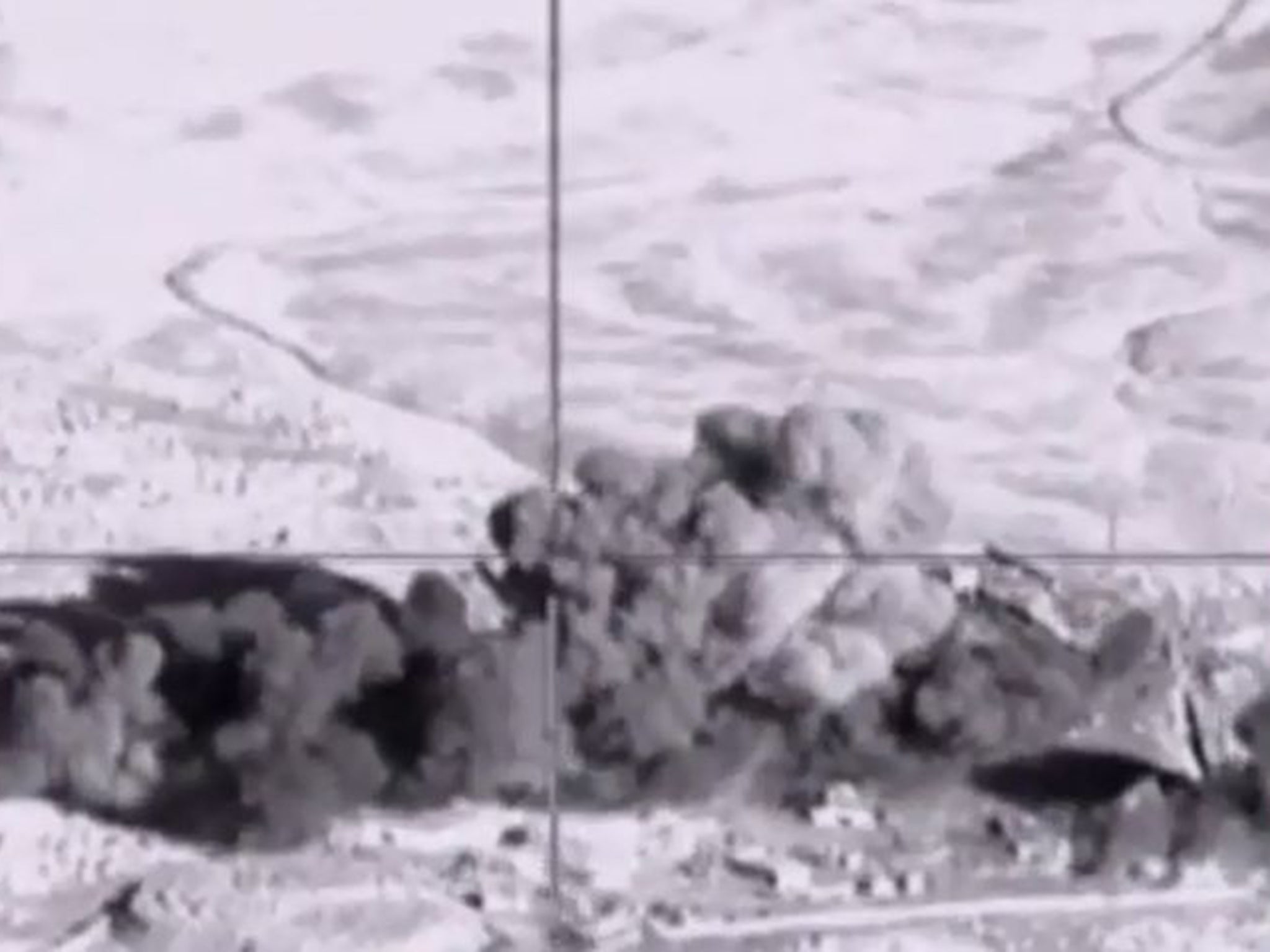UK bombing raids on Syria could begin within days, says David Cameron
'Members of Parliament will be able to take it away, consider it over the weekend, and then we go to having a full day’s debate and proper consideration, and a vote'

British bombing raids on Isis positions in Syria could begin within days after David Cameron paved the way to a vote early next week on military action.
The Prime Minister confirmed he would set out the case on Thursday for air strikes in Syria and indicated he hoped to ask for MPs’ support for the move after the weekend.
“I don't want to bounce the House into this,” he told the Commons. “Members of Parliament will be able to take it away, consider it over the weekend, and then we go to having a full day’s debate and proper consideration, and a vote.”
But he added: “We shouldn’t take too long over it. Every day that we spend is a day that we're not getting to grips with the [Isis] menace.”
He also suggested Isis could be attempting to obtain nuclear and biological weapons. Yesterday, the Government published Britain's national security strategy, warning that Isis and al-Qaeda "will try to acquire chemical, biological and radiological capabilities".
The document disclosed that 800 Britons, who were unknown to security services, have travelled to Syria. Around half have since returned home.
Earlier Mr Cameron offered France the use of Britain’s Akrotiri air base in Cyprus for its strikes on Isis in Syria as President Francois Hollande prepared to ask other world leaders for help fighting the terrorist group.
Speaking in Paris after talks with the French leader, the Prime Minister also offered air-to-air refuelling services, saying he was convinced Britain should carry out military air strikes alongside France and would be recommending that Parliament vote through such measures.
The British proposals came as French officials announced that some sorties against Isis yesterday were flown for the first time from its aircraft carrier, the Charles de Gaulle, and Mr Hollande said these would intensify when the carrier was fully operational next week.
Mr Cameron said he “firmly” supported President Hollande’s attacks on Isis in Syria, adding: “It is my firm conviction that Britain should do so too,” The two men paid an unannounced visit to the Bataclan concert hall, where most victims of the Isis terror attacks were killed.
Mr Hollande visits Washington on Tuesday in an attempt to persuade President Barack Obama to engage the US more closely in the Syrian war, and will meet Russian President Vladmir Putin in Moscow later this week. He will receive German Chancellor Angela Merkel in Paris and Italy’s President Matteo Renzi tomorrow and on Thursday, in his attempt to create a “grand coalition” against Isis.

The US is seeking new military, counter-terrorism and diplomatic ideas to destroy Isis faster, Secretary of State John Kerry said in Abu Dhabi yesterday, admitting the difficulty in eliminating extremists who are now a global threat. Greater military cooperation with Russia was possible under the right circumstances, he said.
“The key is to destroy Daesh rapidly in Syria and in Iraq,” Mr Kerry said, using the Arabic acronym for Isis. “I’d like to see us go faster. The president would like to see us go faster.” But he did not outline any specific additions to the current US strategy.
Separately, the US military said it destroyed 283 tanker trucks used by Isis to transport oil from producing fields in eastern Syria to smuggling points, in an acceleration of attacks on the group’s most important source of income.

Meanwhile Mr Putin met Iran’s supreme leader, Ayatollah Ali Khamenei, yesterday following the nuclear deal - as a result of which, he said, Russia would relax its ban on exporting nuclear technology to Iran. The Iranian leader accused the US of “a long-term plot” to dominate Syria and the region, which he said was “a threat to all countries, especially Russia and Iran.”
Mr Putin said Russia’s own air strikes in Syria would last as long as was necessary to punish those guilty of blowing up the Russian airliner over Egypt last month. But activists in Raqqa, the Isis “capital” in Syria, complained that foreign air strikes - thought to be Russian - were using white phosphorus, a highly flammable chemical whose use is banned in densely populated areas because it is highly toxic and burns through skin and bone. The claim came from Raqqa is Being Slaughtered Silently, a network of citizen journalists within the city.
Additional reporting by Independent staff
Join our commenting forum
Join thought-provoking conversations, follow other Independent readers and see their replies
Comments